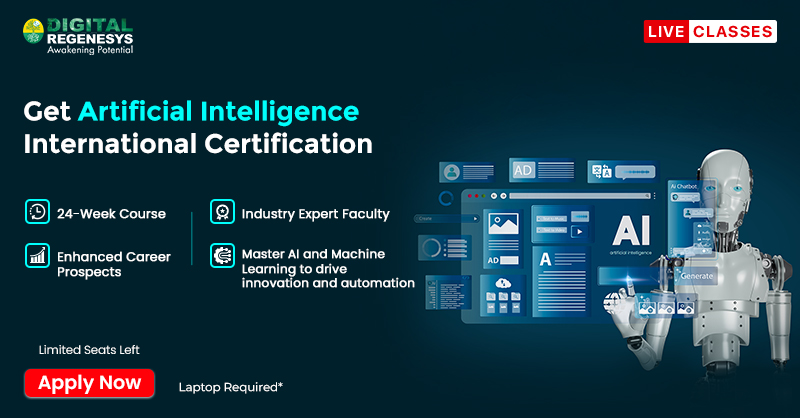How to Become an AI Engineer in the UK Without a Degree or With One

Artificial intelligence has become a pivotal technology in the UK, impacting sectors such as healthcare, finance, education, and retail. Companies are increasingly using AI systems to enhance decision-making, automate processes, and deliver more accurate insights.
As a result, AI engineers are in high demand, bridging the gap between data, algorithms, and real-world applications.
If you are exploring how to become an AI engineer in the UK, this article will guide you through the essential skills, responsibilities, and career pathways. Whether you have a formal degree or are considering alternative routes, the information shared here will help you understand the profession better.
We will also discuss the practical steps you can take to gain knowledge, build experience, and prepare for interviews. By following this article, you will gain clarity on the steps needed to launch a successful career as an AI engineer.
What is an AI Engineer in the UK?
An AI engineer in the UK is a professional responsible for designing, building, and maintaining intelligent systems capable of performing tasks that traditionally required human intelligence. They apply knowledge of computer science, mathematics, and data analytics to create practical solutions for real-world problems.
AI engineers work across various industries, including healthcare, where predictive analytics can improve patient care; finance, where fraud detection systems safeguard transactions; and retail, where AI models enhance customer experiences.
Here are the main aspects that explain what is an AI engineer in the UK:
1. Designing and developing models
They create and train models to recognise patterns, understand language, or make predictions, ensuring that the AI functions accurately.
2. Working with large datasets
Managing structured and unstructured data allows AI engineers to derive insights and improve model performance.
3. Collaborating with teams
They coordinate with analysts, developers, and stakeholders to implement AI solutions effectively.
4. Ensuring ethical AI use
Compliance with UK regulations and ethical guidelines ensures fairness, transparency, and the responsible deployment of AI.
Read more on Why do Companies Value Employees with Artificial Intelligence Course Certificates?

What Are the AI Engineer Responsibilities in the UK?
AI engineers in the UK are responsible for translating complex data into actionable solutions. To understand how to become an AI engineer in the UK, it is important to recognise that the role combines software development skills with knowledge of machine learning and artificial intelligence concepts.
Their responsibilities include designing algorithms, testing models, and deploying systems into production environments. They also monitor and maintain AI models to ensure consistent performance over time.
The role requires attention to detail, strong problem-solving abilities, and a solid grasp of both technical and analytical concepts. Additionally, AI engineers must adhere to ethical standards, ensuring that the AI they develop is fair, transparent, and compliant with UK laws and regulations.
Here are the key duties that explain what does an AI engineer do in the UK:
- Designing algorithms – Creating algorithms that process data efficiently and generate accurate predictions for practical applications.
- Testing and refining systems – Evaluating AI models, identifying weaknesses, and improving accuracy and reliability.
- Integrating AI into applications – Collaborating with developers to include AI features in software solutions used by companies.
- Monitoring performance – Continuously tracking models to detect errors, maintain stability, and improve efficiency.
Read more on What is AGI (Artificial General Intelligence)?
How to Become an Artificial Intelligence Engineer in 2025-26?
The route to becoming an artificial intelligence engineer is evolving, with new tools and learning resources emerging. In 2025-26, aspiring AI engineers should focus on a combination of academic knowledge, practical experience, and online courses.
Gaining hands-on experience is as important as theoretical understanding. Whether you have a formal degree or not, structured learning and consistent practice are critical. Networking and participating in AI projects also provide opportunities to gain insights and establish credibility in the field.
Here are the steps on how to become an artificial intelligence engineer in 2025-26:
- Formal education – Degrees in computer science, mathematics, or related fields provide foundational knowledge required for AI engineering.
- Taking artificial intelligence courses – Structured courses improve understanding of machine learning, deep learning, and practical AI applications.
- Practical experience through projects – Building real-world AI solutions develops skills and demonstrates capability to potential employers.
- Continuous learning – Keeping up with emerging technologies, tools, and ethical standards ensures relevance in a fast-evolving field.
Read more on the Career Guide on How to Become an Artificial Intelligence Engineer.
What Skills Are Required to Become an AI Engineer in the UK?
AI engineers must possess a mix of technical and soft skills to succeed. Technical skills include programming, statistics, and data management, while soft skills involve problem-solving, communication, and collaboration.
These abilities allow engineers to understand business requirements, develop models, and implement solutions effectively. Additionally, AI engineers should be familiar with UK ethical standards and legal requirements to ensure the responsible use of AI.
Employers value candidates who can work on complex problems, adapt to new technologies, and communicate insights clearly.
Here are the essential skills required to become an AI engineer in the UK:
- Programming expertise – Languages such as Python, Java, and R are critical for model building and data manipulation.
- Mathematics and statistics – Strong foundations in algebra, calculus, and probability support accurate AI model creation.
- Data handling and analysis – The ability to collect, clean, and interpret data is key to producing reliable models.
- Soft skills – Problem-solving, teamwork, and communication help integrate AI solutions into organisational workflows.
Read more on What is a Neural Network in AI?
How to Become an AI Engineer in the UK Without a Degree?
A degree is no longer the only path to becoming an AI engineer in the UK. Many professionals successfully enter the field through self-learning, online courses, and hands-on projects.
By focusing on skill development and practical experience, non-degree holders can build strong portfolios that demonstrate their capabilities. Networking and contributing to open-source projects further improve prospects.
With dedication, structured learning, and project-based experience, it is possible to enter the AI field without a formal academic background.
Here are ways to approach how to become an AI engineer without a degree in the UK:
- Enrol in artificial intelligence courses – Online platforms provide comprehensive courses that cover essential AI topics and practical applications.
- Work on personal projects – Building projects and demonstrating skills publicly shows employers your competence and initiative.
- Participate in open-source communities – Contributing to AI projects online helps gain experience and recognition.
- Network and seek mentorship – Connecting with professionals in the AI community provides guidance and insights for career growth.
Career Opportunities and Salary Outlook for AI Engineers in the UK
AI engineers in the UK enjoy diverse career opportunities, with roles spanning healthcare, finance, technology, and retail sectors. Salaries vary based on experience, skills, and industry, but AI engineers are consistently among the higher-paid technical professionals. The demand for AI expertise continues to grow as more businesses implement intelligent systems.
Career progression includes roles such as senior AI engineer, AI architect, and AI research specialist. Professionals who continuously update their skills and work on innovative projects are well-positioned for long-term growth.
Here are the key points about career opportunities and salaries:
- High demand across sectors – AI engineers are needed in multiple industries, offering flexible career options.
- Competitive salaries – Experienced engineers earn attractive compensation, reflecting the technical and analytical expertise required.
- Career advancement – Opportunities exist for promotion to senior engineering, architecture, or research roles.
- Skill-driven growth – Engineers who expand their knowledge in new AI areas remain competitive in the evolving market.
Challenges and How to Overcome Them
Entering the AI field presents challenges such as rapid technological changes, intense competition, and the requirement for ongoing learning. Overcoming these challenges requires focus, structured skill development, and persistence. Keeping up with industry trends and learning new tools is crucial.
Networking and mentoring also help navigate obstacles effectively. While challenges exist, they are manageable with the right approach, making a career in AI both rewarding and sustainable.
Here are strategies to address common challenges:
- Stay updated with new technologies – Regularly review AI research, tools, and methods to remain relevant.
- Build practical experience – Work on real-world projects to strengthen understanding and confidence.
- Develop a learning routine – Set aside time for structured learning and skill enhancement.
- Seek guidance from mentors – Experienced professionals can provide advice and help navigate career challenges.
Conclusion
Becoming an AI engineer in the UK offers a promising career path with diverse opportunities across multiple industries. Whether you have a formal degree or are considering alternative routes, developing the right skills, gaining practical experience, and staying updated with emerging technologies are essential steps.
Understanding what is an AI engineer in the UK, the responsibilities involved, and the skills required helps you approach the field with clarity and confidence. By following structured learning, engaging in projects, and continuously improving, you can successfully navigate your career journey in artificial intelligence.
For those looking to start or enhance their AI career, taking a relevant course can provide the knowledge and hands-on experience needed to enter the field effectively.
Digital Regenesys offers an artificial intelligence certification course designed to provide both foundational knowledge and practical skills. The course covers machine learning, deep learning, and AI applications in real-world scenarios.
Students gain hands-on experience working on projects that reflect industry standards. By completing this course, learners can enhance their understanding of AI concepts and prepare for a career as an AI engineer in the UK.
The course is suitable for individuals with or without a degree, offering structured learning, expert guidance, and practical exercises to develop confidence and competence.
Visit Digital Regenesys to explore the Artificial Intelligence course and start building your AI engineering career today.
Last Updated: 23 September 2025
